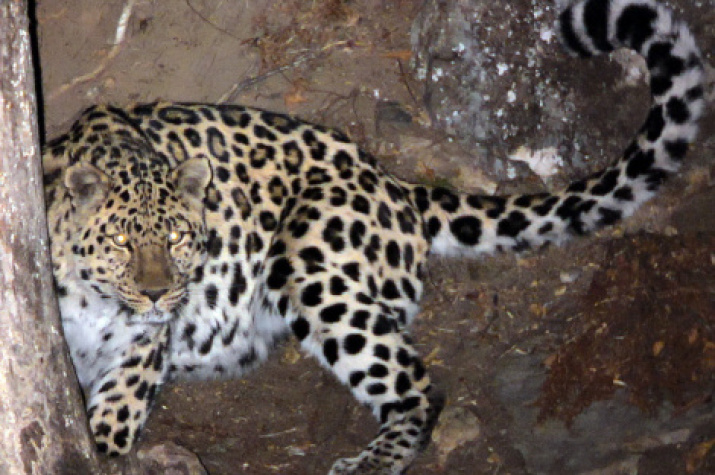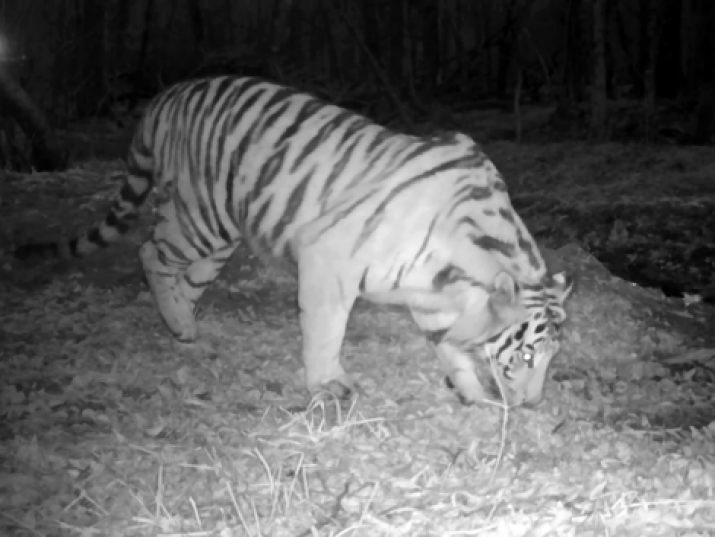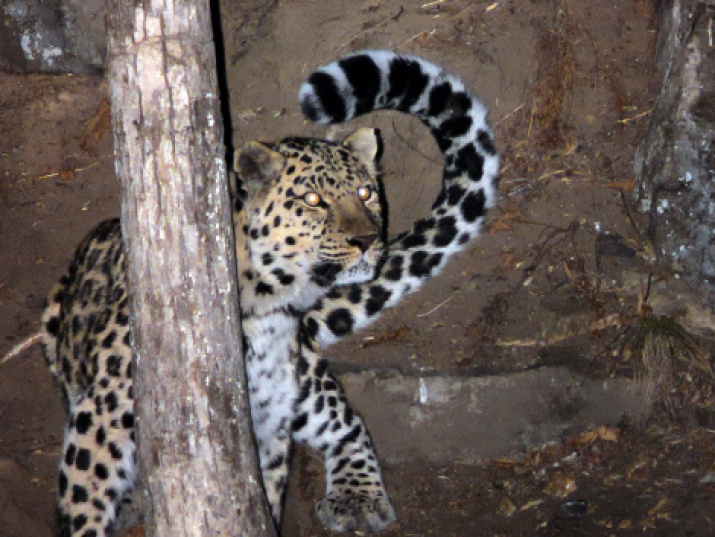The film crew of the EBS TV and Radio Company of the Republic of Korea came to the "Leopards' Land" to create a film about the nature of Russia. The members of the group were lucky - they met and managed to capture the Far Eastern leopard and Amur tiger in the protected area.
In the last century, the leopards and tigers lived throughout the Korean Peninsula, but animals were exterminated in the early twentieth century. Today, South Korea investigates the issues of rare cats retrieval, including turning to the experience of Russian specialists.
On the "Leopards' Land", the South Korean film crew, accompanied by researchers from the national park, managed to capture the unique nature of the Primorsky Territory in its pristine form, as well as get answers to questions of interest. Achievement for journalists was the taking photo of a leopard from a photo stalk using professional high-level technology. The tiger was captured with a camera trap.
“We are trying to tell about the successful work of Russian specialists in preserving rare animals”, said the film general producer So Jun. - We expect to give a new push to the public discussion of the issue of the return of extinct species of animals to the Korean peninsula, having told our fellow citizens about wild cats in Russia. We plan to return to the "Leopards' Land" next winter, and in April 2020 our work will go on the air".
The staff of the"Leopards' Land" positively evaluate the work of Korean specialists, noting that the Government of the Republic of Korea needs to make great efforts for the potential return of leopards land tigers. Also, it is necessary to protect the ungulates and small animals that wild cats eat. In addition, it is important to work with the attitude of the local population towards animals.
“The story of the former extermination of the large predators on the Korean Peninsula and the current restoration of biodiversity is a good example of how man’s attitude to nature is changing”, said Viktor Bardyuk, the director of the "Leopards' Land" Federal State Institution. - Perhaps the residents of Russia should pay attention to the experience of neighbors and think about our losses, small and large, during the burning of grass, cutting down of oak and linden. What we have in abundance today may disappear tomorrow, and it will only be possible to blame ourselves. And the cost of restoration will be immeasurably greater than saving".
Recall also, that the photo trap on the “Leopards' Land” recorded four adult Far Eastern leopards on the border with North Korea in 2018. According to experts, this fact is one of the evidence of the possible habitat of rare cats in the territory of the DPRK. The "Leopards' Land" intends to appeal to North Korea with a proposal to study cats in the border areas jointly.
The Far Eastern leopard is the rarest big cat in the world. At present, these predators live only in the south-west of the Primorsky Territory, as well as in a small part of China, bordering Russia. The core of the population is located under the protection of the Russian national park "Leopards' Land". 91 adult spotted predators and 22 kittens were recorded in Russia according to the results of the photomonitoring data analysis. Also 30 adult Amur tigers and 9 tigers were registered on the "Leopards' Land" .




